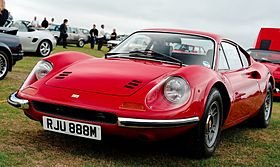Grantm
Member
Hello all !
Well, after the recent demise of my boat, I have been looking at replacement options. Of course bigger and better has to be part of that
Although I am a trained and qualified mechanic its not my current career and I left it behind many years ago, but I still know my way around engines and have always done my own repairs on my boats.
Having said that I would live to get some opinions on which way to go for my next boat as I am a relative newbie to cruiser style boats.
Although the boat choice itself is a personal thing there are options regarding engines and drives.
Gents, what are your thoughts on the following, based on say a thirty foot cruiser of some kind
Petrol engine vs diesel
Twin engine vs single engine
Stern drive vs shaft
There are so many options I'd just love to hear the pros and cons !
Thanks !
Well, after the recent demise of my boat, I have been looking at replacement options. Of course bigger and better has to be part of that
Although I am a trained and qualified mechanic its not my current career and I left it behind many years ago, but I still know my way around engines and have always done my own repairs on my boats.
Having said that I would live to get some opinions on which way to go for my next boat as I am a relative newbie to cruiser style boats.
Although the boat choice itself is a personal thing there are options regarding engines and drives.
Gents, what are your thoughts on the following, based on say a thirty foot cruiser of some kind
Petrol engine vs diesel
Twin engine vs single engine
Stern drive vs shaft
There are so many options I'd just love to hear the pros and cons !
Thanks !

